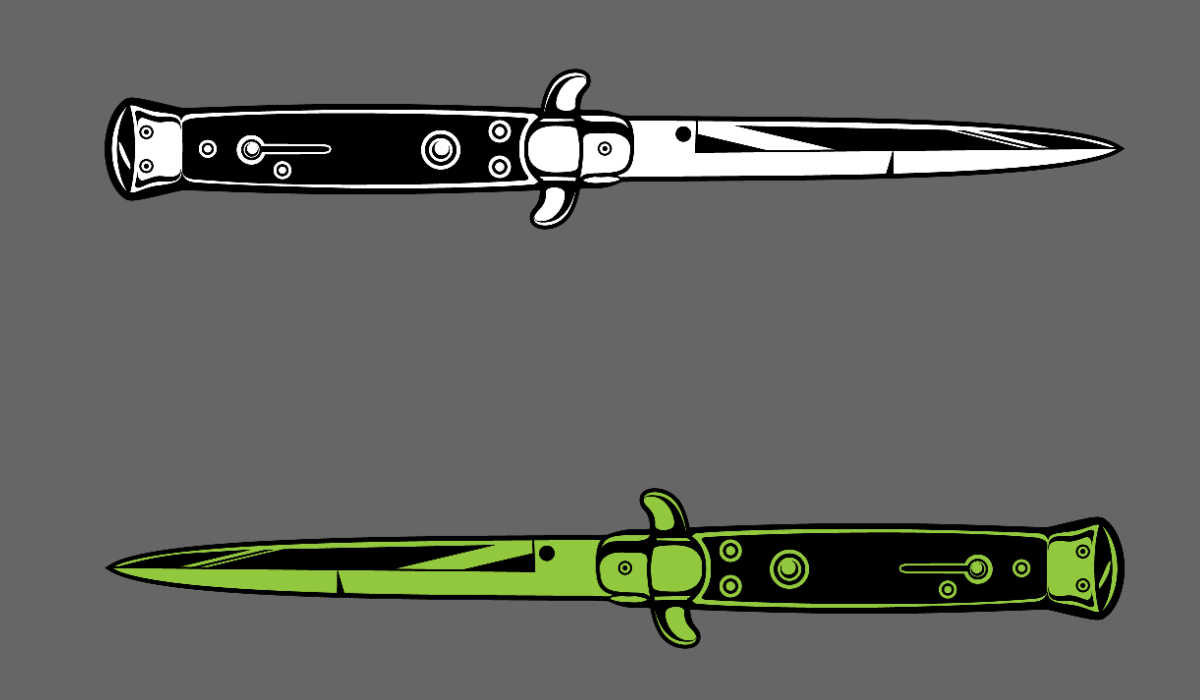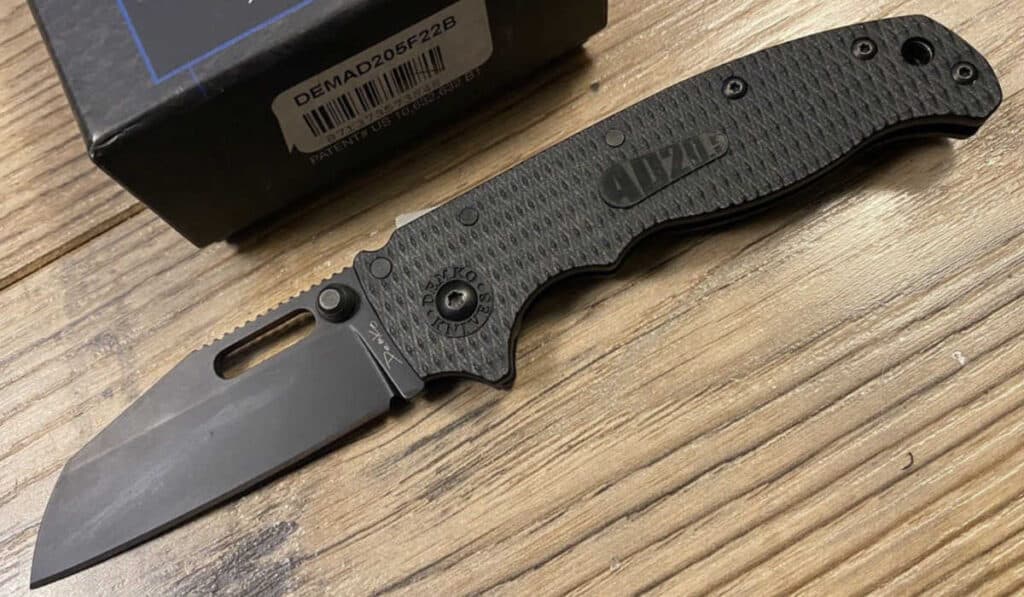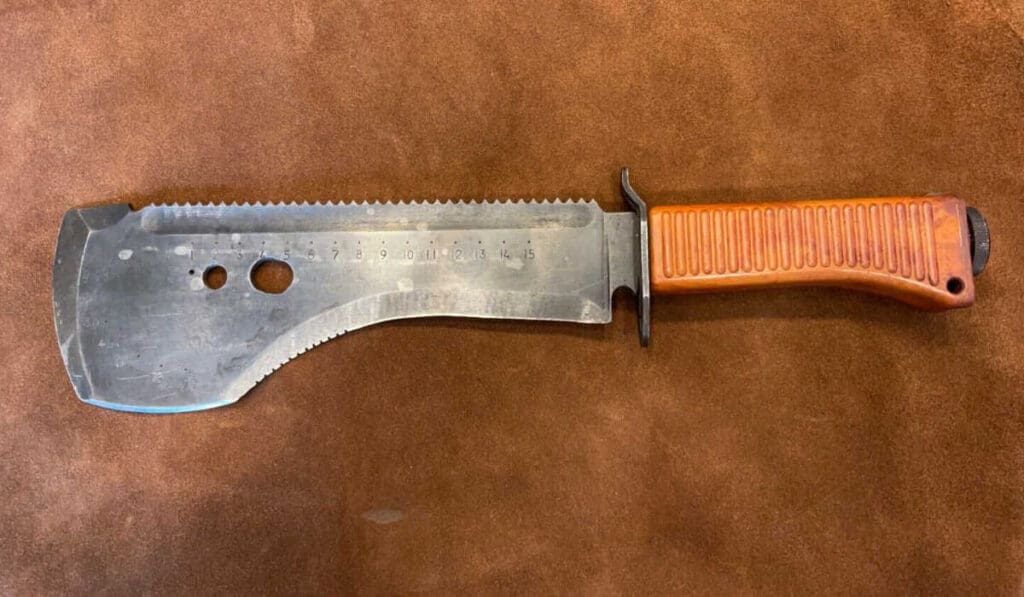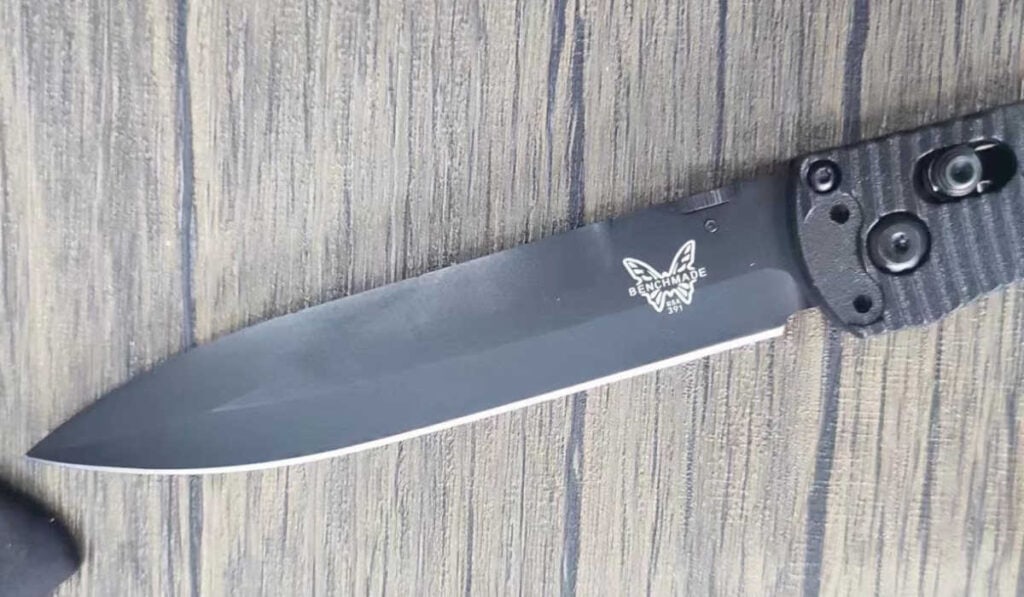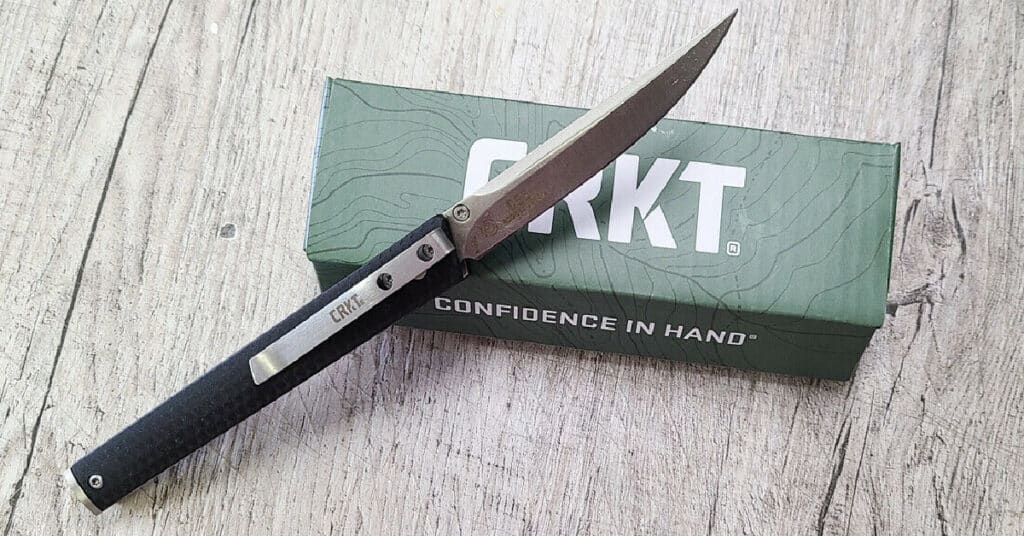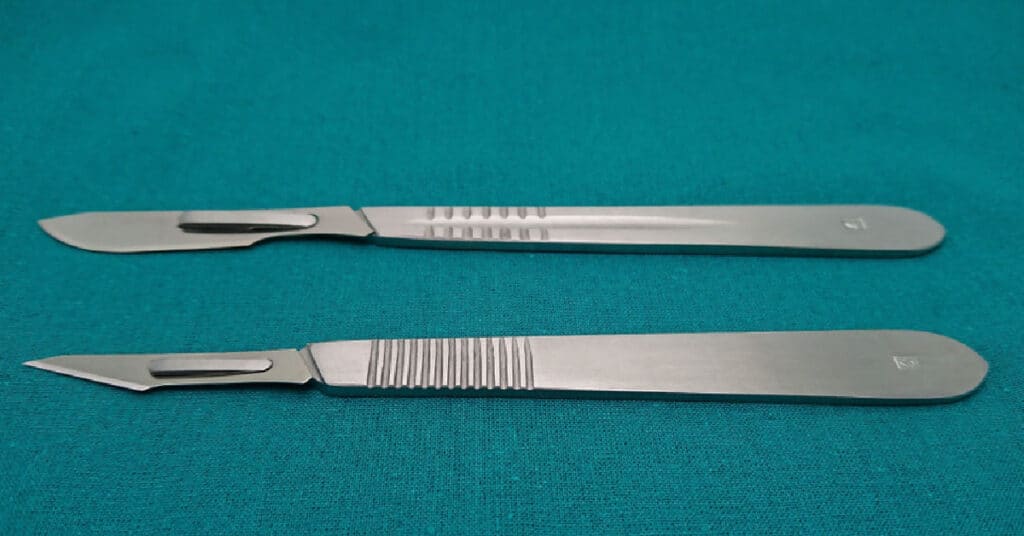Last updated on August 30th, 2023 at 12:44 am
As an Amazon Associate I earn from qualifying purchases.
Switchblades, also known as automatic knives, have garnered a controversial reputation over the years, leaving many to wonder about their legality. While they remain popular among collectors and enthusiasts due to their convenient design, it is essential to understand the laws and regulations surrounding these knives before owning or carrying one in the United States.
The legality of switchblades varies on a state-by-state basis, with some states permitting their possession and others prohibiting it. Although there is no federal restriction on the ownership or carrying of a switchblade, some limitations still apply such as interstate commerce and mailing through the U.S. Postal Service. In order to navigate the complex legal landscape surrounding switchblades, it is best to familiarize yourself with the specific laws pertaining to your state.
With a comprehensive understanding of switchblade laws, collectors and users can better avoid potential legal repercussions. As a knife enthusiast, it is crucial to respect the regulations to ensure responsible ownership and use of these unique and often misunderstood items.
Federal Switchblade Act
The history of the restriction and regulation of switchblade knives can be traced back to the Federal Switchblade Act. This was enacted in 1958 to address concerns about the perceived increase in the use of these knives in crimes. The Act defines a switchblade knife as any knife with a blade that opens automatically.
The Federal Switchblade Act only concerns itself with regulating the sending of automatic knives via the U.S. Postal Service, as well as prohibition of the transportation and distribution of such knives in interstate commerce. This means that, while restrictions apply at the federal level, states have the freedom to regulate and enforce their own laws on switchblade usage and ownership.
Repeal
Over the years, there have been efforts to repeal or amend the Federal Switchblade Act in order to modernize and better reflect the current state of knife laws and usage. Various organizations and proponents of knife rights have challenged the Act on the basis of potential constitutional issues, as well as the need to update the laws to fit the modern context.
Current Status
The Federal Switchblade Act is still in effect, but the degree of enforcement and interpretation can vary across states and jurisdictions. Some states have loosened their restrictions and allow switchblade ownership, while others maintain strict regulations on possession and usage.
It is important for individuals to stay aware of the regulations governing switchblades in their state or locality. As it stands now, the legality of switchblades ultimately depends on individual state laws and regulations, despite the existence of the federal act which is explained here.
In conclusion, it is crucial for anyone interested in owning or using a switchblade to become familiar with the specific laws and regulations in their area to ensure compliance and avoid legal troubles. The Federal Switchblade Act serves as a baseline on which states can build their own regulations, resulting in a patchwork of laws that must be navigated by knife enthusiasts, collectors, and users.
Are Switchblades Legal In Your State?
(Do note that laws change so be sure to double-check as I can only update things so fast)
Alabama: Yes. No restrictions on the ownership of switchblades or any other type of knife.
Alaska: Yes. No restrictions on the ownership of switchblades, but there may be restrictions on carrying.
Arizona: Yes. The state of Arizona has no restrictions on owning, carrying, or selling switchblades.
Arkansas: Yes. Arkansas has no restrictions on owning or carrying switchblades.
California: No. Switchblades with blades longer than 2 inches are prohibited.
Colorado: Yes, with restrictions. Only switchblades with blades under 3.5 inches are legal.
Connecticut: Yes, with restrictions. Only switchblades with blades less than 1.5 inches are legal.
Delaware: No. Switchblades are prohibited outright in Delaware.
Florida: Yes. Florida has no restrictions on owning switchblades.
Georgia: Yes. No restrictions on the ownership of switchblades.
Hawaii: No. All forms of switchblades are illegal in Hawaii.
Idaho: Yes. Idaho has no restrictions on switchblades.
Illinois: Yes, with restrictions. Switchblades are only legal if the owner has a valid Firearm Owner’s Identification Card.
Indiana: Yes. No restrictions on owning or carrying switchblades.
Iowa: Yes. No restrictions on owning or carrying switchblades.
Kansas: Yes. No restrictions on owning or carrying switchblades.
Kentucky: Yes. No restrictions on owning or carrying switchblades.
Louisiana: Yes. No restrictions on owning or carrying switchblades.
Maine: Yes, with restrictions. Switchblades with blades over 3 inches are restricted.
Maryland: Yes, with restrictions. Maryland law does not restrict ownership of switchblades, but carrying concealed is illegal.
Massachusetts: No. All switchblades are illegal.
Michigan: Yes. No restrictions on owning or carrying switchblades.
Minnesota: Yes. No restrictions on owning or carrying switchblades.
Mississippi: Yes. No restrictions on owning or carrying switchblades.
Missouri: Yes. No restrictions on owning or carrying switchblades.
Montana: Yes. No restrictions on owning or carrying switchblades.
Nebraska: Yes. No restrictions on owning or carrying switchblades.
Nevada: Yes. No restrictions on owning or carrying switchblades.
New Hampshire: Yes. No restrictions on owning or carrying switchblades.
New Jersey: No. Switchblades are illegal.
New Mexico: Yes. No restrictions on owning or carrying switchblades.
New York: No. Switchblades are illegal.
North Carolina: Yes. No restrictions on owning or carrying switchblades.
North Dakota: Yes, with restrictions. Carrying concealed switchblades is prohibited.
Ohio: Yes, with restrictions. Switchblades with blades over 2.5 inches are restricted.
Oklahoma: Yes. No restrictions on owning or carrying switchblades.
Oregon: Yes, with restrictions. Carrying a concealed switchblade is illegal.
Pennsylvania: No. Switchblades are illegal.
Rhode Island: Yes, with restrictions. Carrying a concealed switchblade is illegal.
South Carolina: Yes. No restrictions on owning or carrying switchblades.
South Dakota: Yes. No restrictions on owning or carrying switchblades.
Tennessee: Yes. No restrictions on owning or carrying switchblades.
Texas: Yes. No restrictions on owning or carrying switchblades.
Utah: Yes. No restrictions on owning or carrying switchblades.
Vermont: Yes, with restrictions. Carrying a concealed switchblade is illegal.
Virginia: Yes, with restrictions. Carrying a concealed switchblade is illegal.
Washington: Yes, with restrictions. Carrying a concealed switchblade is illegal.
West Virginia: Yes, with restrictions. Carrying a concealed switchblade is illegal.
Wisconsin: Yes. No restrictions on owning or carrying switchblades.
Wyoming: Yes. No restrictions on owning or carrying switchblades.
➡️ Visit Our State Knife Law Directory
Possession and Sale Restrictions
Switchblade knives, also known as automatic knives, have varying legality across the United States. While there is no federal restriction on the ownership, possession, or carrying of a switchblade knife, some states have enacted laws concerning them. In general, the majority of the states allow auto-open knives.
It’s important to know the specific laws in your state to avoid any legal trouble. In terms of sale and manufacture, there are no federal restrictions on automatic knives within the 50 states. However, you should always check your state’s knife laws for any local restrictions on blade length or possession, as some nuances may still apply.
Currently, switchblades are legal in 46 states. This means that you can legally possess, own, and, in some cases, carry an automatic knife in these jurisdictions. Nonetheless, you should always consult your local knife laws to ensure you are within legal boundaries.
Keep in mind that while some states’ switchblade laws have been repealed or loosened, such as in Michigan, there may still be uncertainties around carrying them, due to the vagueness of the “other dangerous weapon” language. So, stay informed and up-to-date on any changes in knife legislation within your state.
Carrying and Concealed Carry
Switchblade laws vary from state to state, and it is essential to understand the specific knife laws that apply to carrying and concealed carry in your area. In some states, it is legal for non-law enforcement citizens to carry and own automatic knives, while others have restrictions on blade length or prohibited areas.
For example, states such as Alabama and Alaska do not prohibit auto-open knives for non-law enforcement citizens but may have restrictions on blade length or sales to specific individuals. On the other hand, some states like Arkansas and Oklahoma have banned carrying any switchblade on or about the person, whether concealed or not2.
The Federal Switchblade Act regulates the importation and interstate commerce of all types of switchblades but does not restrict purchasing or carrying switchblade knives4. This means that federal law does not directly address carry or concealed carry rules, leaving it up to individual states to create their regulations.
When considering carrying or concealed carry of a switchblade, it is crucial to check your state’s knife laws and restrictions to ensure compliance.
Some of the factors to consider include:
- Blade length limitations
- Concealed versus open carry rules
- Restrictions on specific areas (e.g., schools or government buildings)
- Requirements for permits or licenses
Being knowledgeable about your local knife laws is essential to avoid possible legal repercussions. As regulations can change over time, it is also important to stay up-to-date with any amendments to your state’s knife laws.
Exceptions and Special Permissions
Switchblade laws vary from state to state, but there are some exceptions and special permissions that apply in certain cases. For instance, switchblades may be legally carried by law enforcement officers, emergency medical services (EMS) personnel, and military service members in the line of duty. This is because their professions often require quick access to knives and tools to perform life-saving tasks.
In some states, the legality of carrying a switchblade depends on the blade length. For example, in certain jurisdictions, switchblades with blades shorter than three inches may be legal to possess and carry. It is important to check your local and state regulations to ensure compliance.
Another exception can be found in the Federal Switchblade Act, which contains provisions that protect one-hand opening or assisted opening knives from being incorrectly classified as switchblades or gravity knives. This means that knives with a bias toward closure, requiring some degree of exertion to open, are not considered switchblades and may be legally owned and used.
In summary, there are exceptions and special permissions that allow for the legal possession and use of switchblades in certain situations and locations. Law enforcement, EMS, and military members may carry switchblades for professional purposes, while individuals might be allowed to possess switchblades with blades shorter than three inches in some jurisdictions. Additionally, assisted opening knives that have a bias toward closure are exempt from being classified as switchblades, potentially allowing for their legal use. Remember to consult your local and state regulations to stay compliant with the current laws surrounding switchblade possession and usage.
Transportation and Interstate Commerce
The Federal Switchblade Act plays a significant role in regulating the transportation and commerce of switchblade knives across the United States. According to the American Knife and Tool Institute (AKTI), the first section of the act prohibits the importation and interstate commerce of switchblades or gravity knives, while the second section prohibits automatic knives from being mailed through the U.S. Postal Service, with a few exceptions.
The Federal Switchblade Act imposes strict penalties on those who knowingly introduce, manufacture for introduction, transport, or distribute switchblade knives in interstate commerce. Violators can be fined up to $2,000 or imprisoned for up to five years, or both.
It is essential to note that the federal restrictions are specifically focused on interstate commerce and transportation of switchblades. There is no federal restriction on the ownership, possession, or carrying of a switchblade knife within a state’s borders, as long as it does not cross state lines. State and local laws can vary, so it is crucial to understand the regulations in your area before possessing, carrying, or transporting a switchblade.
Transportation of switchblades within a state’s borders can be subject to varying state and local laws, which may have their regulations regarding the possession, carrying, or transportation of such knives. For example, California Penal Code 21510 PC specifically prohibits knowingly carrying a switchblade in the state.
In summary, the Federal Switchblade Act focuses on regulating the transportation and interstate commerce of switchblade knives in the United States. Individuals must adhere to these federal laws and be aware of any additional state or local regulations concerning switchblade knives in their area, as penalties for non-compliance can be severe.
Knife Laws in Schools and Other Restricted Areas
Switchblades, as well as other types of knives, are often subject to various laws and regulations when it comes to carrying them in certain locations such as schools and other restricted areas. It is essential to be aware of these regulations to avoid any legal complications.
In most states, there are specific measures in place that prohibit carrying knives on school premises. These regulations are generally applicable to all types of knives, including switchblades. The laws aim to ensure the safety of students and staff within educational institutions.
Other restricted areas where carrying switchblades might be prohibited include government buildings, courthouses, airports, and public transportation facilities. These restrictions are typically enforced as part of general weapon restrictions to maintain public safety. Each state or local government may have its own laws and regulations in place, so it is crucial to familiarize oneself with the specific rules in the area where you reside or plan to visit.
It is worth noting that the restrictions on carrying knives, including switchblades, in restricted areas often apply to both open and concealed carry. Violating these rules can lead to serious consequences such as fines, confiscation of the knife, or even criminal charges.
In summary, while switchblades may be legal to own and carry in many states, it is essential to be aware of the restrictions in place when it comes to carrying them in schools and other specified areas. To ensure compliance with the law and maintain public safety, always familiarize yourself with the specific regulations applicable to your location.
Do Sheepsfoot Blades Have A Purpose? (Cuz They’re Ugly…)
Spetsnaz Machetes – Blades Of The Russian Special Forces
What Is The Actual Purpose Of A Spear Point Knife Blade?
CRKT CEO Review – Coolest, Most Worthless Knife Ever?
How Sharp Is A Scalpel? (Is It Sharper Than A Razor?)
Can You Shave With A Knife? (Yes, Here’s How)
As an Amazon Associate I earn from qualifying purchases.

